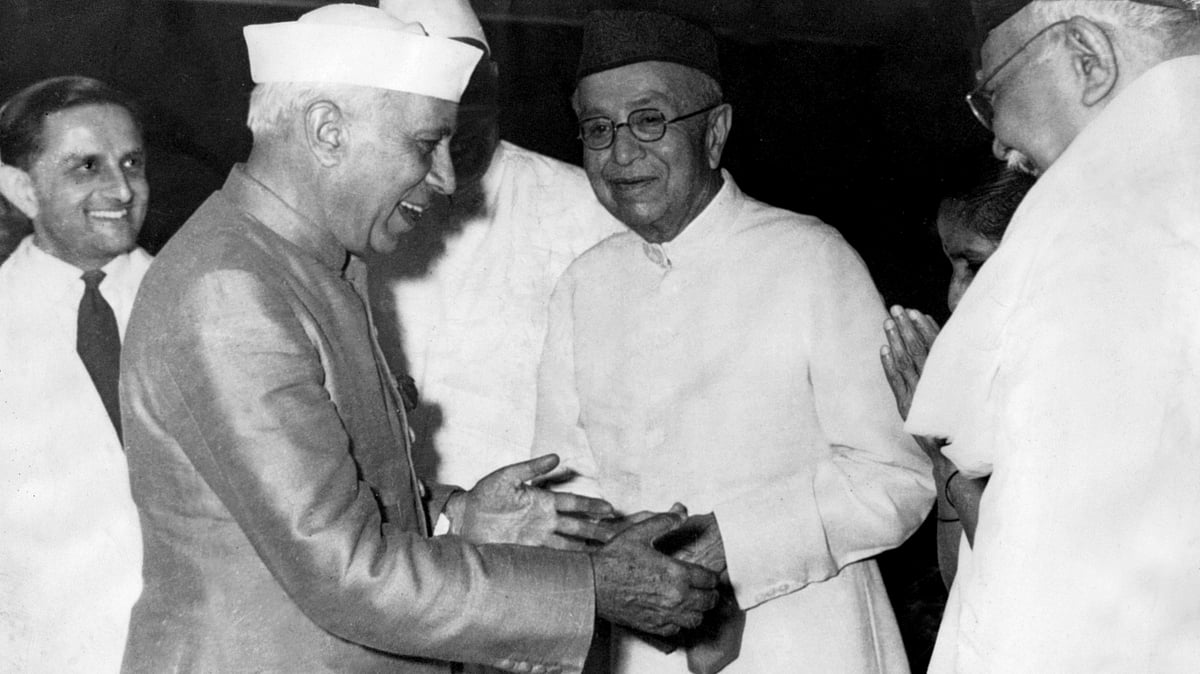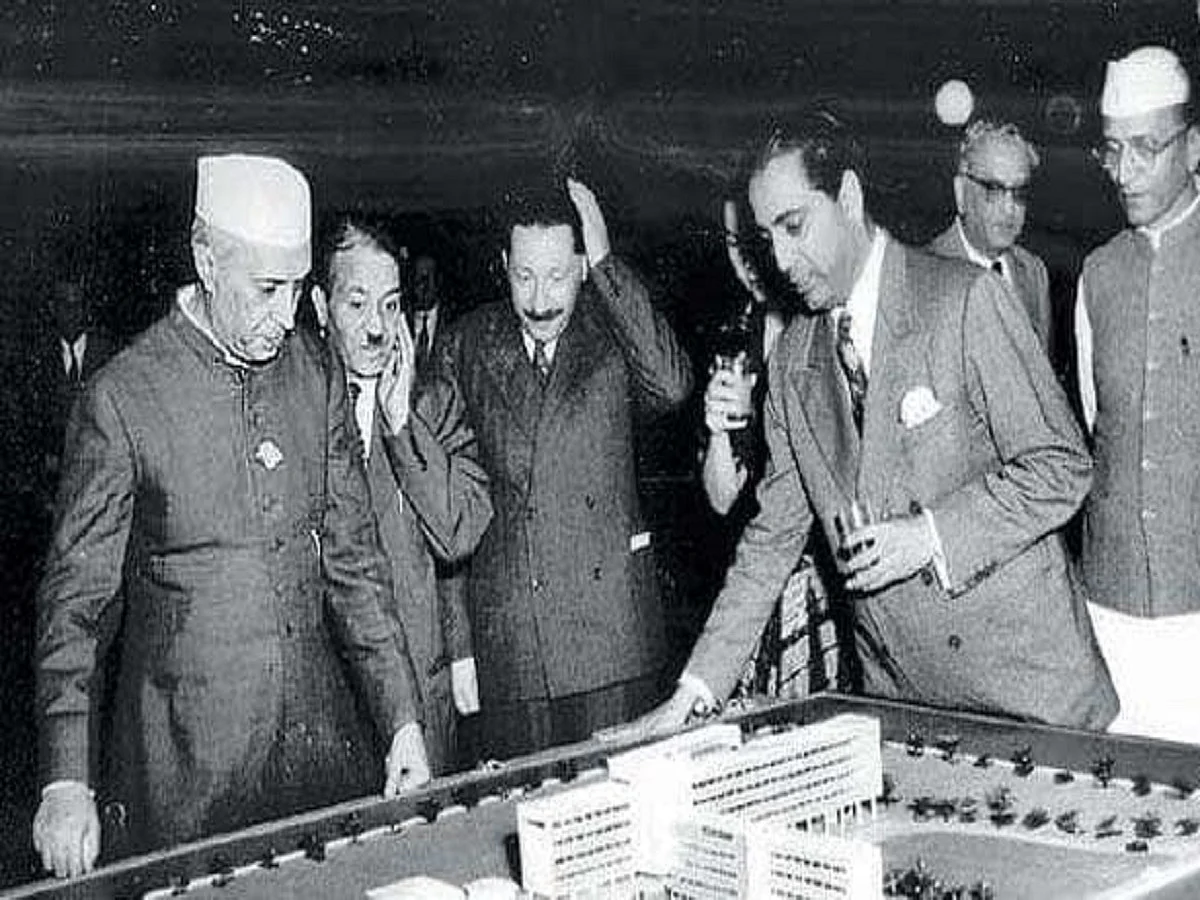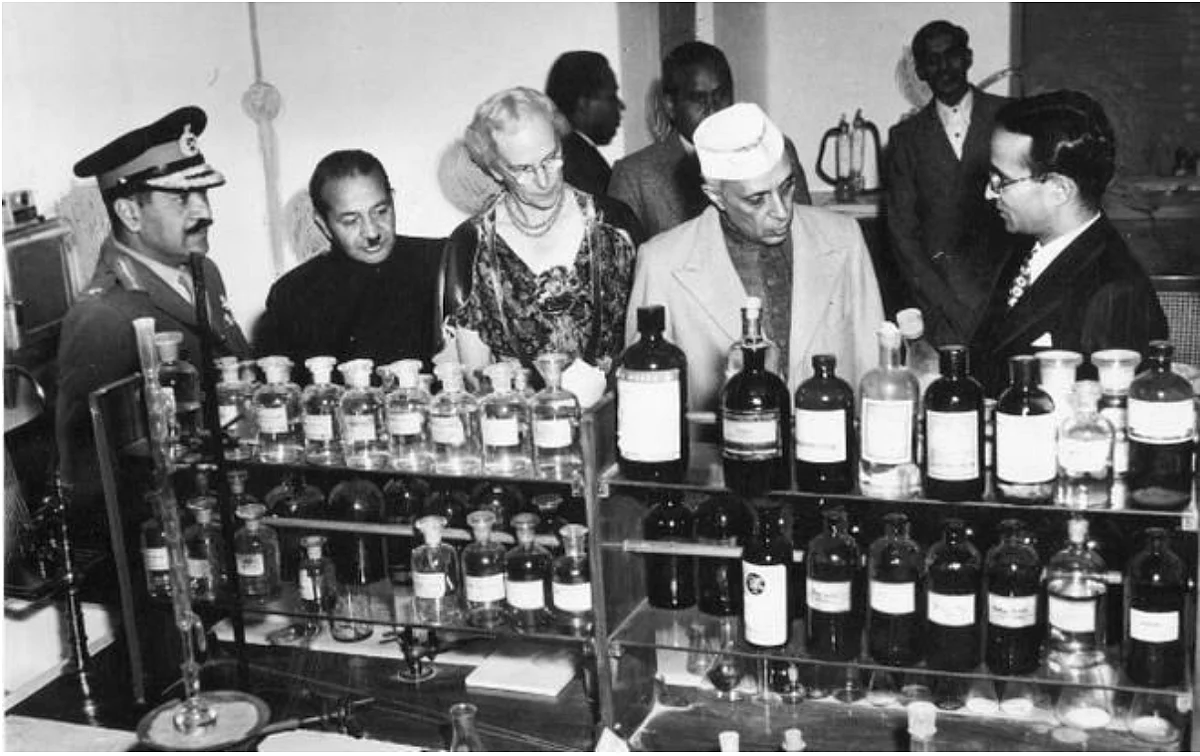Chandrayaan-3 success rooted in former PM Nehru's scientific temper
When a space programme seemed audacious, in the aftermath of Partition, with our economic limitations, Pandit Jawaharlal Nehru established a Physical Research Laboratory—led by Vikram Sarabhai

India’s space agency, the Indian Space Research Organisation (ISRO), achieved a significant milestone by successfully landing the unmanned Chandrayaan-3 mission on the lunar south pole on 23 August 2023.
With this achievement, India became the fourth country in history to land on the moon and the first country to achieve a successful landing in its challenging south pole region.
The lunar south pole is an area of growing interest due to recent discoveries of water ice on the moon’s surface. This discovery holds implications for future space exploration, as water could potentially serve as a resource for fuelling rockets and spacecraft. (Water can be broken down into hydrogen, which can serve as fuel, and oxygen.)
India’s accomplishment further solidifies its position as an emerging power in space exploration geopolitics. The international stage has taken notice of India’s strides in space, and the country has been proactive in forming alliances with other space agencies to enhance its space capabilities.
Front-runner in science, including space exploration
The success of the Chandrayaan-3 mission further accentuates India’s prowess in accomplishing remarkable space endeavours on a relatively modest budget compared to its counterparts.
As the country basks in the glory of ISRO’s accomplishment, it’s crucial to acknowledge the deep roots of India’s space programme. They can be traced back to the year of the nation’s independence, with the establishment of the Physical Research Laboratory in Ahmedabad in 1947.

The trajectory of India’s space programme, from its nascent stages to its present achievements, forms a compelling narrative shaped by the nation’s challenges and aspirations.
The initial decades following India’s 1947 independence were largely devoted to addressing pressing socioeconomic issues, as the young nation grappled with multi-faceted problems.
Amid these tumultuous times, the prospect of a space programme appeared audacious, even unattainable, considering India’s economic limitations and in the aftermath of Partition.
Yet, the visionary leadership of India’s first prime minister, Jawaharlal Nehru, set in motion a saga of scientific and space exploration achievements that continues to resonate today.
Nehru’s unwavering dedication to scientific advancement, emphasis on education and recognition of technology’s role in national development fundamentally reshaped India’s trajectory as a front-runner in science and space exploration.
India’s scientific advancement
Nehru’s vision revolved around utilising space technology for civilian applications, a perspective that led to strategic partnerships with brilliant minds like Dr Vikram Sarabhai and Dr Homi Jahangir Bhabha.
This collaboration fast-tracked decisions pertaining to space exploration, acknowledging the potential of space technology to expedite India’s journey of progress.

In contemporary discussions, whenever something goes awry in India, some tend to attribute the blame to Nehru and his 17-year rule. Whether these attributions are accurate or not is a separate debate, but it’s impossible to disregard the pivotal contributions of the Nehru era in shaping India’s advancements in science, particularly in space research and education.
The former prime minister’s faith in science and technology served as a catalyst for national growth, shaping India’s advancements in these domains. As Professor Pervez Hoodbhoy aptly stated, Nehru’s leadership prevented India from becoming a breeding ground for pseudoscientific beliefs.
Nehru, a visionary leader and a student of science, recognised the significance of scientific progress in nation building, and worked tirelessly to establish the foundation for India’s growth as a scientific powerhouse.
His efforts spanned diverse areas, from founding research institutions to promoting education, all of which continue to yield results and contribute to India’s progress on the global scientific stage.
Nehru understood the pivotal role of a robust education system in nurturing scientific talent. He emphasised the need for high-quality education that fosters critical thinking and innovation. He established esteemed institutions like the Indian Institutes of Technology (IITs), which became pillars of India’s scientific advancement.
His support for organisations such as the Tata Institute of Fundamental Research (TIFR) provided a platform for scientists to pursue groundbreaking research in disciplines like physics, mathematics and biology.

An indelible mark
This encouragement of fundamental research laid the foundation for India’s future contributions to cutting-edge scientific discoveries. One of Nehru’s foremost contributions was fostering a culture of scientific inquiry and promoting collaborations among scientists. He recognised that a nation’s progress hinged on its capacity to harness the potential of its intellectual community.
In 1962, Nehru played a pivotal role in forming the Indian National Committee for Space Research (INCOSPAR), marking India’s official entry into space exploration. This critical step laid the groundwork for what would ultimately become ISRO in 1969.
Nehru’s doctrine of self-reliance and indigenous development exerted a lasting influence on India’s space programme. Nehru’s steadfast belief that scientific progress must be self-propelled, rather than contingent on external sources, has been adopted as a guiding principle by ISRO.
This mindset steered ISRO’s trajectory toward cultivating indigenous technologies, encompassing both launch vehicles and satellites. This commitment bore fruit in the form of the Polar Satellite Launch Vehicle (PSLV) and the Geosynchronous Satellite Launch Vehicle (GSLV), the backbone of India’s satellite launch endeavours.
Nehru’s philosophy empowered ISRO to surmount initial challenges, culminating in the launch of its debut satellite Aryabhata in 1975. This accomplishment marked India’s ascendancy to the league of spacefaring nations.
Jawaharlal Nehru’s contributions to India’s scientific and space progress, whether acknowledged or not, leave an indelible mark. His focus on education, indigenous growth and scientific exploration laid the foundation for India’s strides in these domains. Nehru’s legacy in space lives on through ISRO’s values and goals.
ISRO’s initiatives in communication, remote sensing and navigation services, all designed for societal enhancement, echo Nehru’s emphasis on technology for public welfare.
It is Nehru’s legacy that endures as ISRO persists in its quest to probe the cosmos, advance technology and enhance citizens’ lives through space applications.
---
The author is a professor of peace and conflict research at Uppsala University, Sweden. This article first appeared in Gulf News
Follow us on: Facebook, Twitter, Google News, Instagram
Join our official telegram channel (@nationalherald) and stay updated with the latest headlines
